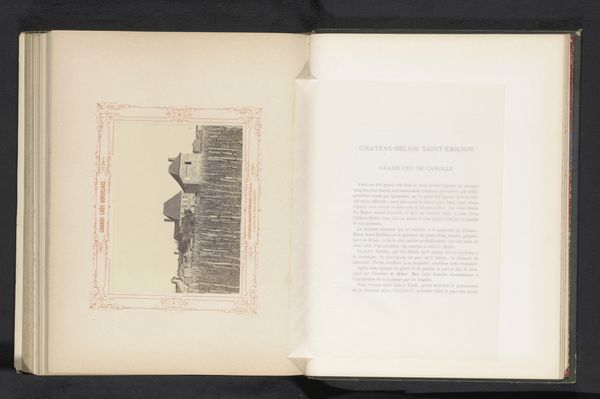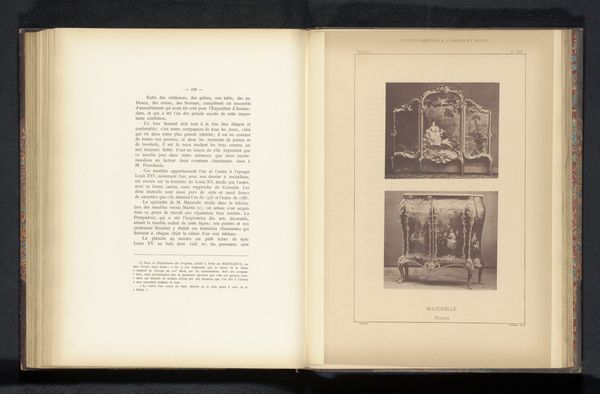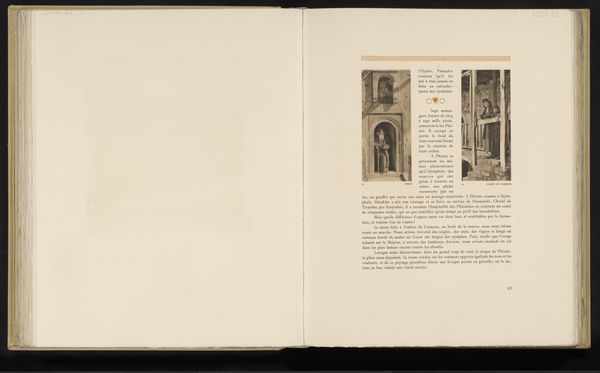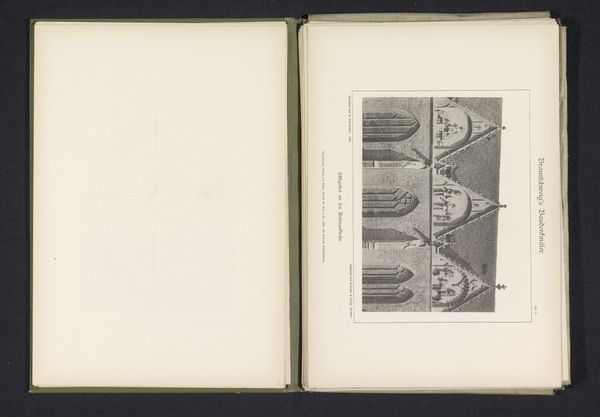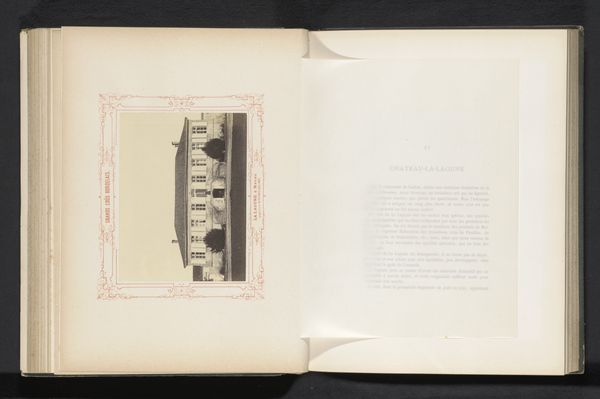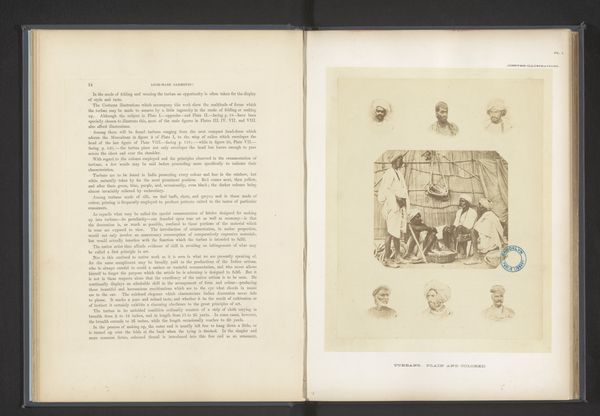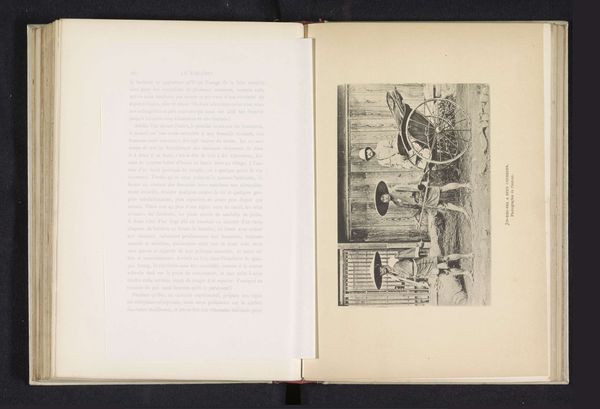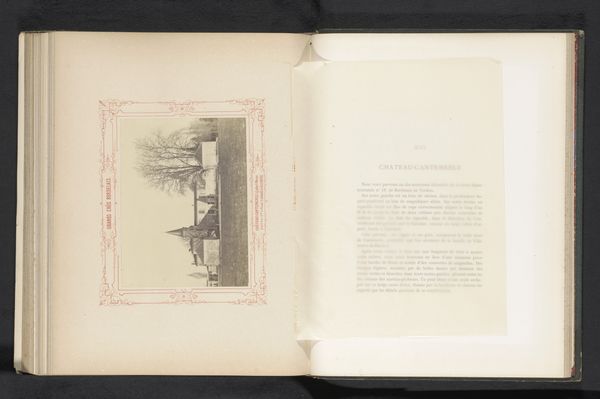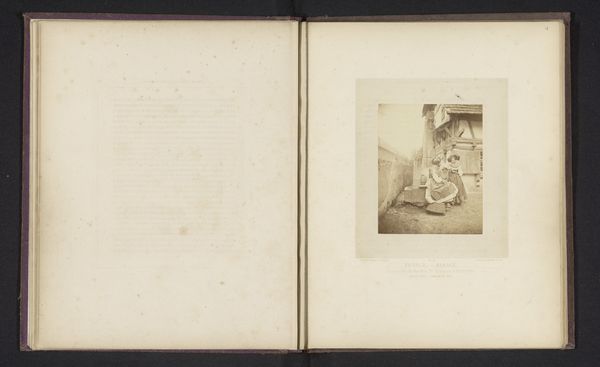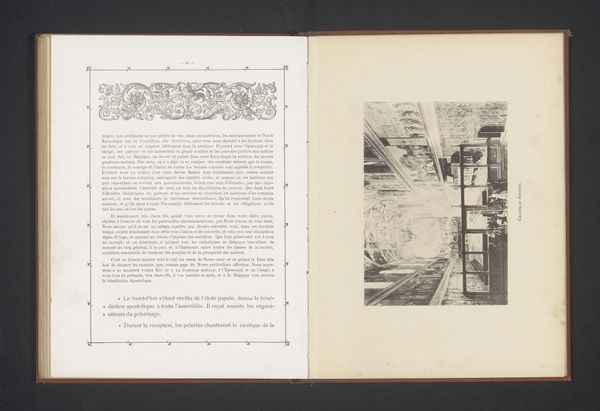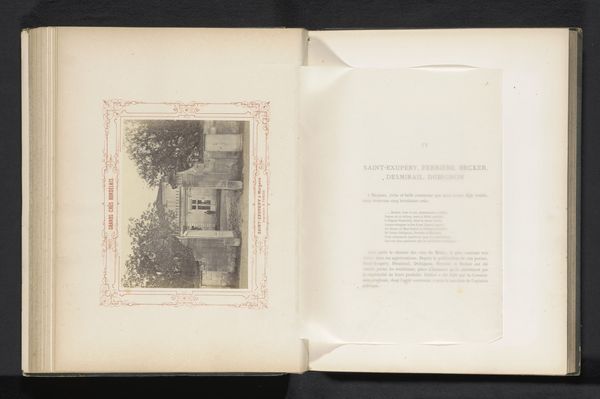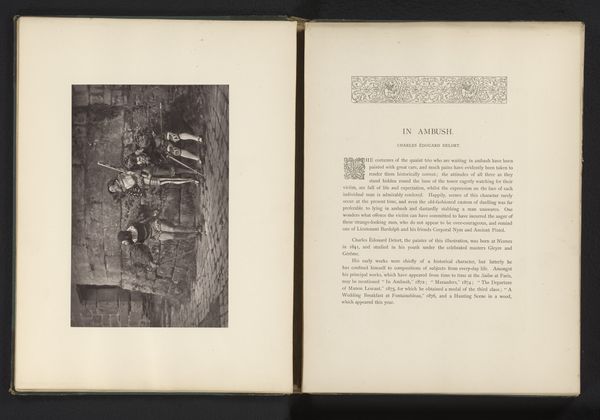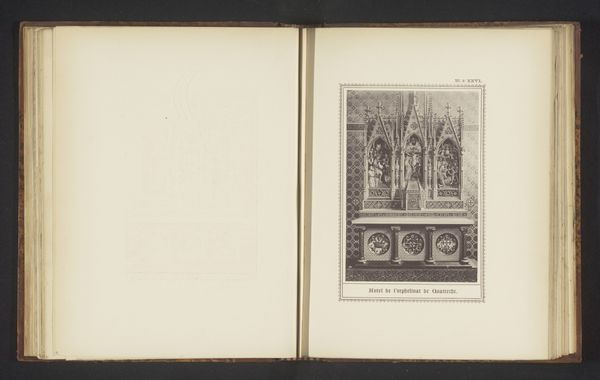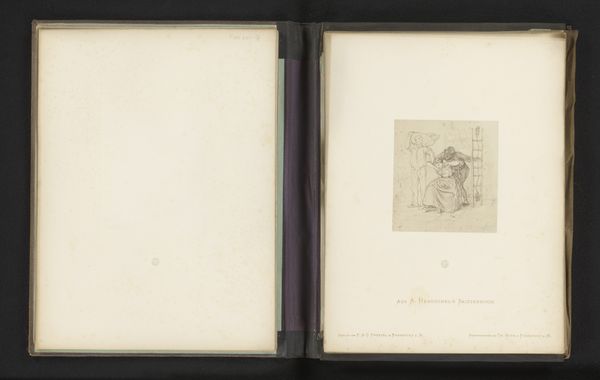
print, photography, engraving, architecture
#
aged paper
#
still-life-photography
#
homemade paper
#
paper non-digital material
#
paperlike
# print
#
photography
#
journal
#
thick font
#
cityscape
#
handwritten font
#
thin font
#
engraving
#
architecture
#
historical font
#
small font
Dimensions: height 201 mm, width 151 mm
Copyright: Rijks Museum: Open Domain
Editor: Here we have an engraving of a photograph, "Schouw in de salon van de burgemeester in het Stadhuis van Manchester," or "Fireplace in the Mayor's Parlour in Manchester Town Hall", from 1877 by J. McLeod. It shows an open book displaying a quite ornate fireplace. It looks incredibly imposing. What stands out to you in this image? Curator: The immediate thing that grabs my attention is the interplay between the photograph and the book itself. By framing this image of civic architecture within the context of a book, McLeod isn't just documenting the Town Hall, but is also constructing a very deliberate narrative. What do you think that narrative might be? Editor: Well, being inside a book gives it historical weight, and also implies a kind of official record… maybe the civic pride and ambition that went into building this hall? Curator: Precisely! This was an era of immense civic pride in industrial cities like Manchester. Town Halls were potent symbols of progress and power. Think about the context: photography itself was still a relatively new medium, and reproducing it as an engraving added another layer of "officialdom". Editor: So the very act of enshrining the image in a book gives it additional symbolic value? Curator: Absolutely! It transforms the depiction of a fireplace from a simple visual record into a carefully curated statement about Manchester's identity. The placement within the open book simulates the active experience of viewing the work. Who had access to such archives and publications and why does it matter? Editor: So much to think about. I hadn’t considered the choice of media to be quite so important in constructing that narrative of power. Curator: And that is the crucial aspect. It prompts us to consider whose stories get told and how cultural and institutional forces operate together. A very successful and clever historical artifact!
Comments
No comments
Be the first to comment and join the conversation on the ultimate creative platform.
